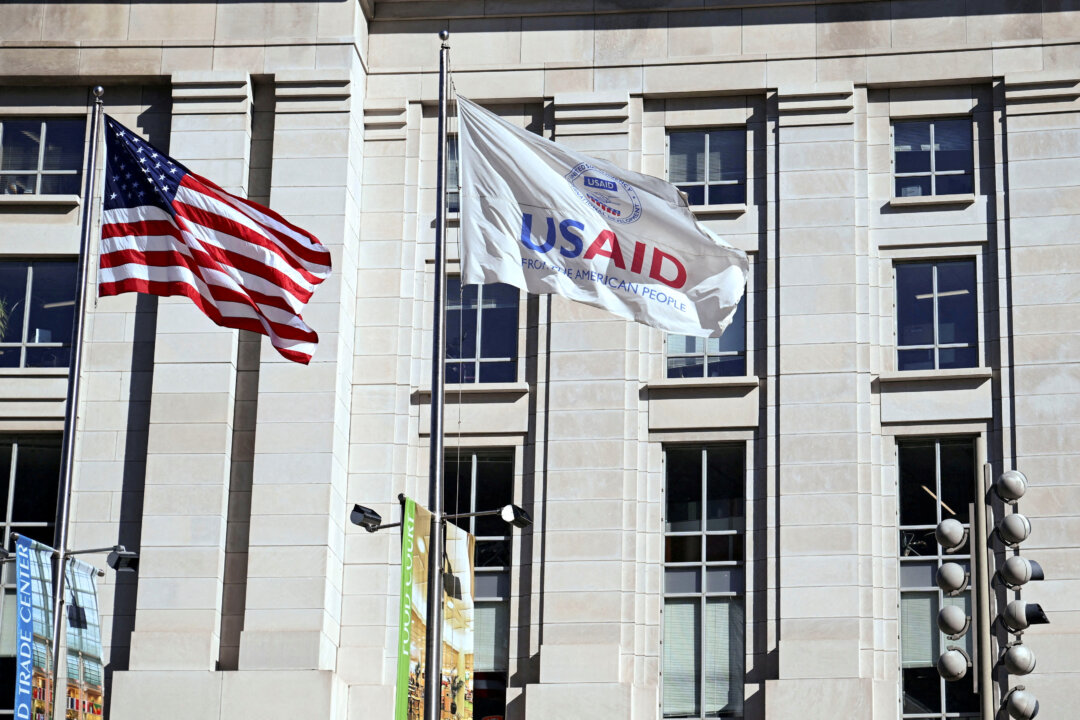The Trump administration can now move forward with its plans to put some 2,000 USAID employees on leave.
A federal judge on Friday declined to block the Trump administration from placing more than 2,000 U.S. Agency for International Development (USAID) employees on leave, marking a setback for government employee unions challenging what they describe as an effort to dismantle the agency.
U.S. District Judge Carl Nichols ruled on Feb. 21 that the unions had not demonstrated that their members faced irreparable harm from being placed on administrative leave. In his decision, Nichols denied a request for a preliminary injunction, stating that the plaintiffs had not established a likelihood of success on the merits and that the public interest did not strongly favor an injunction.
“Plaintiffs have presented no irreparable harm they or their members are imminently likely to suffer from the hypothetical future dissolution of USAID,” the judge wrote. “And it is not clear why the speed of proceedings in the relevant agencies would be insufficient to address the only actions that have already happened and are presently ripe for review: administrative leave placements, expedited evacuations, and other changes to working conditions of the sort those bodies routinely confront.”
The ruling follows President Donald Trump’s Jan. 20 executive order imposing a 90-day freeze on all foreign aid, a move that prompted a wave of lawsuits. The administration contends the pause is necessary to reassess USAID programs, which it has described as wasteful and misaligned with U.S. interests.
Following Trump’s order, USAID instructed thousands of employees to cease work on Feb. 7, placing them on paid administrative leave and revoking their access to email, payment, and security systems. Employees stationed abroad were told to return to the United States within 30 days.
The unions—the American Federation of Government Employees (AFGE) and the American Foreign Service Association—filed suit against Trump, Secretary of State Marco Rubio, USAID, and the departments of State and Treasury, arguing that the administration is attempting to dismantle USAID in violation of the Appropriations Act, which requires the president to notify Congress before significantly altering USAID’s workforce.
The union plaintiffs argued that USAID’s shutdown is triggering a global humanitarian crisis and placing employees at risk, particularly in unstable regions such as the Gaza Strip and the Democratic Republic of the Congo.
“These actions have generated a global humanitarian crisis by abruptly halting the crucial work of USAID employees, grantees, and contractors,” they alleged in the complaint. “They have cost thousands of American jobs. And they have imperiled U.S. national security interests.”
While Nichols initially granted a temporary restraining order (TRO) on Feb. 7, blocking forced leave and repatriation, he later scaled back his ruling after the government clarified that not all employees were being forcibly recalled. The TRO expired on Feb. 21 and Nichols declined to extend it, allowing the administration to move forward with its plans to put some 2,000 USAID employees on leave.
In his Feb. 21 order, Nichols also signaled that future claims related to USAID’s workforce reductions must go through administrative review, such as the Merit Systems Protection Board or Foreign Service Grievance Board, before being brought to court.
A request for comment sent to counsel representing the unions was not immediately returned.

